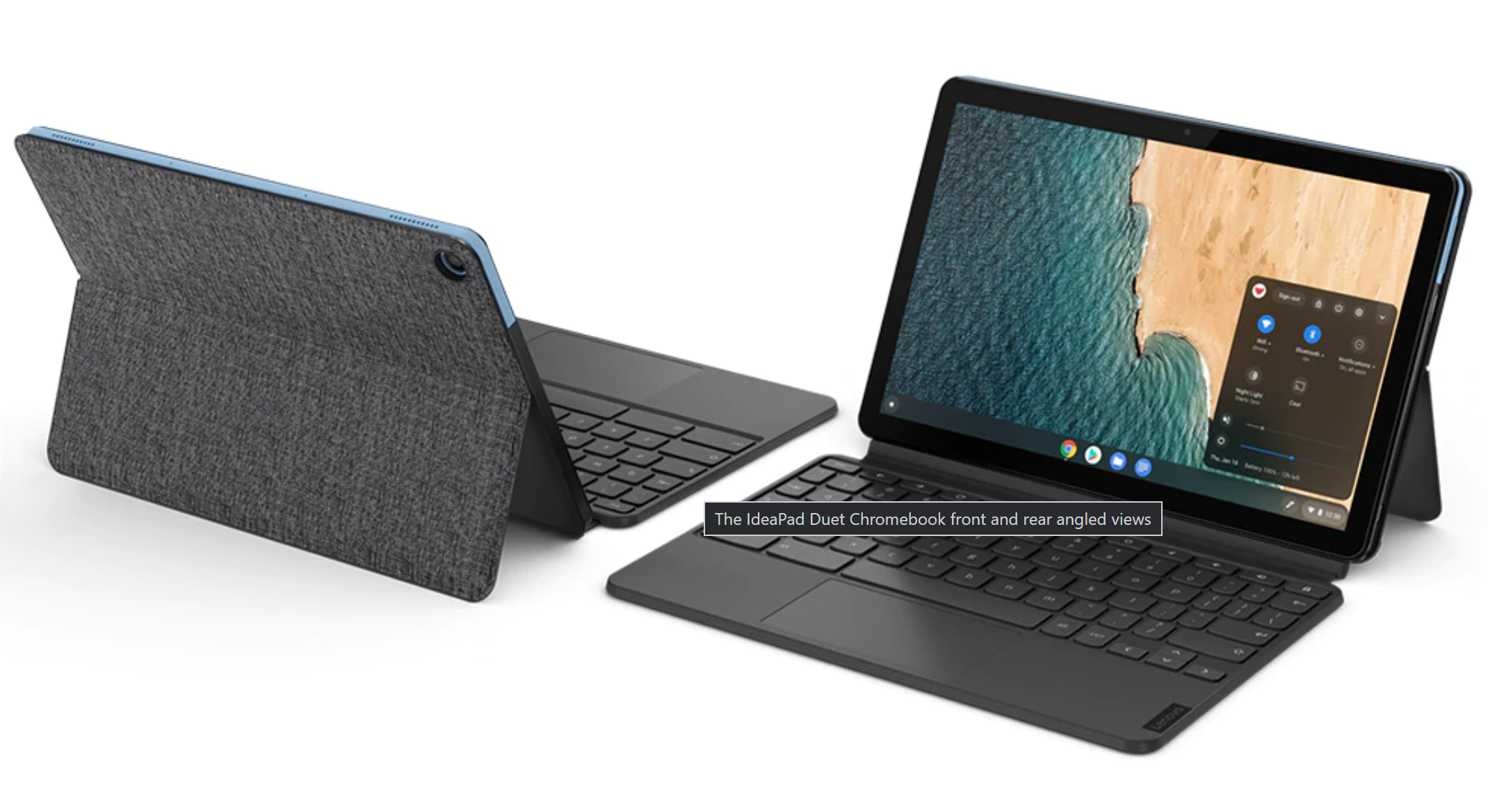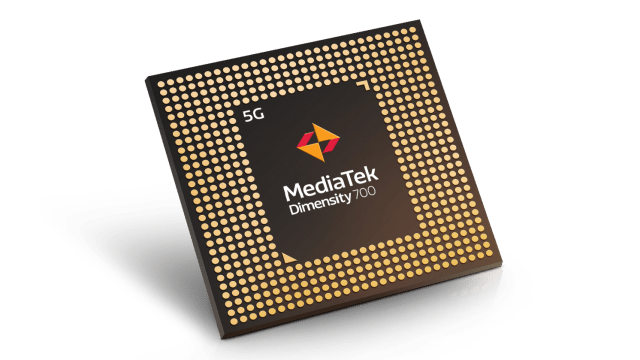5G and the pandemic are already changing the way people buy and use their devices, so to help bring more competition to affordable mobile devices, MediaTek is launching a new line of smartphone and Chromebook processors.
Starting with its smartphone chip, the new MediaTek Dimensity 700 is based on a 7nm architecture and features an integrated 5G modem, which MediaTek claims delivers up to 28% better energy efficiency than a comparable 8nm chip. Meanwhile, when it comes to 5G, the Dimensity 700 supports 2CC 5G carrier aggregation which can result in mobile download speeds of up to 2.7 Gbps.
That said, the Dimensity 700’s biggest upgrade may be support for features like 90Hz displays, 64-MP cameras (with special processing for Night Mode shots), and MediaTek’s 5G Ultra Save tech to help reduce battery drain when using 5G. Internally, the Dimensity 700 features an octa-core design with two ARM A76 cores to help deliver speedy performance.
Now I admit, smartphone chips (especially budget and mid-range chips like these) aren’t exactly the most exciting topic. But with the number of new phones that have come out recently featuring Qualcomm’s mid-range Snapdragon 765G chip (such as the Pixel 5, Nokia 8.3 5G, LG Wing, and more), it’s nice to see MediaTek release an updated mid-range chip to help increase CPU choice for 5G phone makers. That could end up meaning savings to people buying phones down the line. Unfortunately, the one drawback to the Dimensity 700 is that it doesn’t come with integrated support for mmWave 5G, which could make it a tough sell for phones on carriers like Verizon.
As for Chromebooks, which have recently suffered from massive product shortages due to so many people working and learning from home, MediaTek is releasing two new chips in the 7nm MT8192 and 6nm MT8195.

The MT8192 will be the slightly more affordable of the two and features an octa-core design comprised of four high-performance ARM A76 cores and four energy-efficient A55 cores. However, unlike a lot of budget Chromebook chips, the MT8192 also provides support for features like 1920 x 1080 displays with 120Hz refresh rates and 4K HDR video decoding, which are things you typically don’t find on a lot of low-cost notebooks.
Building off that, the MT8195 takes things a bit further with a 6nm octa-core design featuring four ARM A78 cores, four A55 cores, and MediaTek’s new APU 3.0, which allow for things like support for up to three displays simultaneously, HDR via Dolby Vision, 7.1 surround sound, and up to 80-MP cameras (or dual 32-MP cams).
Similar to the Dimensity 700’s play when it comes to making cheaper 5G phones, MediaTek’s new Chromebook chips should help increase the supply and reduce the price of future low-cost laptops, which is something that could really benefit a lot of students as kids continue to have to learn from home.
While the general caveat about new processors is that they don’t mean a ton until they find their way into actual devices you can buy, there shouldn’t be a huge delay as the Dimensity 700 is expected to start shipping in phones in early Q1 2021 and MT8192 and MT8195 are expected to be featured in products starting as early as Q2 2021.
